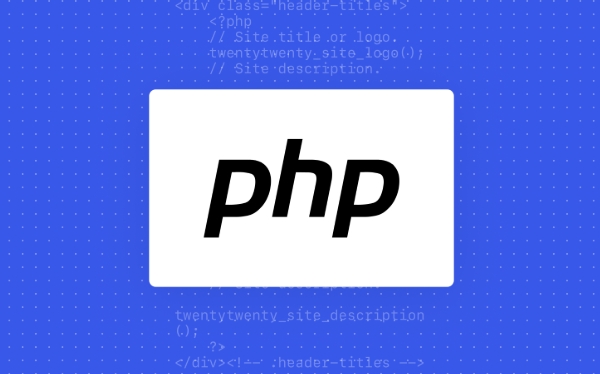 Backend Development
Backend Development
 PHP Tutorial
PHP Tutorial
 Navigating the Boundaries: A Deep Dive into Local and Global Scope
Navigating the Boundaries: A Deep Dive into Local and Global Scope
Navigating the Boundaries: A Deep Dive into Local and Global Scope
Jul 26, 2025 am 09:38 AMThe difference between local and global scope lies in where variables are declared and accessible: global variables are defined outside functions and accessible everywhere, while local variables are declared inside functions and only accessible within them. 1. Global scope allows broad access but risks unintended modifications, reduced testability, and naming conflicts. 2. Local scope ensures encapsulation, preventing side effects and enabling modular, reusable code. 3. Functions can read global variables but must use the global keyword to modify them, avoiding accidental local variable creation. 4. Block scope behavior varies by language—Python and older JavaScript (var) lack block-level scope, while modern JavaScript (let, const) enforces it. 5. Best practices include preferring local scope, using parameters and return values for data flow, limiting global usage to constants, and ensuring clear variable names to prevent confusion. Understanding scope improves code predictability, maintainability, and collaboration by clearly defining where variables can be accessed and modified.

When learning programming—especially in languages like Python, JavaScript, or C—understanding the difference between local and global scope is essential. These concepts dictate where variables and functions can be accessed in your code, and mismanaging them can lead to bugs, unexpected behavior, or hard-to-maintain scripts. Let’s break down what local and global scope really mean, how they interact, and how to use them effectively.

What Is Scope, and Why Does It Matter?
Scope refers to the region of code where a variable or function is accessible. Think of it like visibility: just as you can’t see what’s inside a closed room from outside, your code can’t access variables unless they’re in the current scope.
There are two primary types:

- Global scope: Variables declared outside of any function or block are globally accessible.
- Local scope: Variables declared inside a function (or block in some languages) are only accessible within that function.
This distinction helps prevent naming conflicts, reduces side effects, and makes code more predictable.
Global Scope: The Big Picture
Variables defined at the top level of your script—outside any function or class—are in the global scope.

# Python example
city = "Berlin"
def greet():
print(f"Hello from {city}!")
greet() # Output: Hello from Berlin!Here, city is global, so the greet() function can access it. But this convenience comes with risks.
Common Pitfalls with Global Variables:
- They can be accidentally modified from anywhere.
- They make code harder to test and debug.
- They reduce reusability (functions depend on external state).
So while global variables are useful for constants or configuration, avoid using them for mutable data.
Local Scope: Contained and Controlled
When you define a variable inside a function, it’s local to that function.
def calculate_area(radius):
pi = 3.14159
area = pi * radius ** 2
return area
# print(pi) # This would cause a NameErrorHere, pi and area only exist inside calculate_area. Once the function finishes, they’re gone (unless returned).
Key Points:
- Local variables are created when the function runs and destroyed when it exits.
- Multiple functions can use the same variable names without conflict.
- This isolation makes functions modular and safe.
When Local and Global Interact
Sometimes, you need to access or modify a global variable from within a function. That’s where things get tricky.
Reading Global Variables
In most languages, you can read global variables from a local scope without issues.
counter = 0
def increment():
print(counter 1) # Reads global counter
increment() # Output: 1But if you try to modify it, you might accidentally create a local variable instead.
def increment():
counter = counter 1 # ERROR! Python thinks 'counter' is localThis fails because Python sees an assignment to counter and assumes it’s local—but you’re trying to read it before it’s defined.
Modifying Globals: Use with Caution
To actually change a global variable inside a function, you need to explicitly declare it:
counter = 0
def increment():
global counter
counter = counter 1
increment()
print(counter) # Output: 1The global keyword tells Python: “This isn’t a new local variable—I mean the one from the global scope.”
?? Warning: Overusing global breaks encapsulation. It makes functions dependent on external state, which harms maintainability.
Block Scope: A Language-Specific Detail
Not all languages handle scope the same way.
Python: No block scope. Variables inside
if,for, orwhileblocks are still accessible outside (if not in a function).if True: x = 100 print(x) # Works: 100JavaScript (with
var): No block scope either (function-scoped).JavaScript (with
let/const): Has block scope.if (true) { let y = 200; } console.log(y); // ReferenceError: y is not definedSo always check how your language handles scoping—especially when using loops or conditionals.
Best Practices for Managing Scope
To write cleaner, safer code:
- ? Prefer local over global: Keep data close to where it’s used.
- ? Use parameters and return values: Pass data explicitly instead of relying on globals.
- ? Use constants for global configuration: If you must have global values, make them read-only.
- ? Avoid
globalunless absolutely necessary: It’s a code smell in most cases. - ? Name variables clearly: Helps avoid confusion between similar names in different scopes.
Final Thoughts
Understanding scope isn’t just about avoiding errors—it’s about writing code that’s predictable, testable, and easy to collaborate on. Local scope protects your functions from unintended side effects, while global scope provides shared access when needed.
Use global variables sparingly, embrace local scope, and always be mindful of where your variables live. That way, you’ll navigate the boundaries of scope with confidence.
Basically, keep it local when you can, global when you must.
The above is the detailed content of Navigating the Boundaries: A Deep Dive into Local and Global Scope. For more information, please follow other related articles on the PHP Chinese website!

Hot AI Tools

Undress AI Tool
Undress images for free

Undresser.AI Undress
AI-powered app for creating realistic nude photos

AI Clothes Remover
Online AI tool for removing clothes from photos.

Clothoff.io
AI clothes remover

Video Face Swap
Swap faces in any video effortlessly with our completely free AI face swap tool!

Hot Article

Hot Tools

Notepad++7.3.1
Easy-to-use and free code editor

SublimeText3 Chinese version
Chinese version, very easy to use

Zend Studio 13.0.1
Powerful PHP integrated development environment

Dreamweaver CS6
Visual web development tools

SublimeText3 Mac version
God-level code editing software (SublimeText3)

Hot Topics
 The Omnipresent Scope: A Practical Guide to PHP's Superglobals
Jul 26, 2025 am 09:47 AM
The Omnipresent Scope: A Practical Guide to PHP's Superglobals
Jul 26, 2025 am 09:47 AM
PHP's hyperglobal variables are always available built-in arrays used to process request data, manage state and obtain server information; 1. When using $_GET, URL parameters need to be type-converted and verified; 2. When receiving form data through $_POST, filtering should be performed with filter_input(); 3. Avoid using $_REQUEST to prevent security vulnerabilities; 4. $_SESSION needs to call session_start() and log in to reset the session ID; 5. When setting $_COOKIE, enable secure, httponly and samesite attributes; 6. The information in $_SERVER cannot be fully trusted and cannot be used for security verification; 7.$_ENV may be
 Navigating the Boundaries: A Deep Dive into Local and Global Scope
Jul 26, 2025 am 09:38 AM
Navigating the Boundaries: A Deep Dive into Local and Global Scope
Jul 26, 2025 am 09:38 AM
Thedifferencebetweenlocalandglobalscopeliesinwherevariablesaredeclaredandaccessible:globalvariablesaredefinedoutsidefunctionsandaccessibleeverywhere,whilelocalvariablesaredeclaredinsidefunctionsandonlyaccessiblewithinthem.1.Globalscopeallowsbroadacce
 Demystifying Global Access: `global` Keyword vs. the `$GLOBALS` Array
Jul 25, 2025 am 05:27 AM
Demystifying Global Access: `global` Keyword vs. the `$GLOBALS` Array
Jul 25, 2025 am 05:27 AM
ThetwomaintoolsforaccessingglobalvariablesinPHParetheglobalkeywordandthe$GLOBALSsuperglobalarray;1)Theglobalkeywordcreatesareferencetoaglobalvariableinsideafunction,allowingdirectaccessandmodification,andifthevariableisundefined,itinitializesitasnull
 Mastering Lexical Scoping: The `use` Keyword and PHP Anonymous Functions
Jul 25, 2025 am 11:05 AM
Mastering Lexical Scoping: The `use` Keyword and PHP Anonymous Functions
Jul 25, 2025 am 11:05 AM
In PHP, if you want to use external variables in anonymous functions, you must explicitly import them through the use keyword; 1. Use is used to introduce external variables into the lexical scope of the closure; 2. Pass variables by default by value, and pass them by reference with &$var syntax; 3. Multiple variables can be imported, separated by commas; 4. The value of the variable is captured when the closure is defined, not when it is executed; 5. Each iteration in the loop creates an independent closure copy to ensure that the variable value is correctly captured; therefore, use is a key mechanism to achieve the interaction between the closure and the external environment, making the code more flexible and controllable.
 Scope Implications of Generators and the `yield` Keyword
Jul 25, 2025 am 04:45 AM
Scope Implications of Generators and the `yield` Keyword
Jul 25, 2025 am 04:45 AM
Functions using yield will become generators, and when called, they return the generator object instead of being executed immediately; 2. Local variables of the generator will not be destroyed during the yield pause, but will continue to exist with the generator frame until the generator is exhausted or closed; 3. Extended variable life cycle may lead to an increase in memory usage, especially when referring to large objects; 4. When combined with closures, LEGB rules are still followed, but the latebinding problem of looping variables needs to be solved by immediately binding (such as the default parameter value); 5. .close() should be called explicitly to ensure that finally block execution is performed to avoid delays in resource cleaning. The generator affects memory and behavior by extending the survival time of variables, but does not change the lexical scope rules.
 The Scope Resolution Order: How PHP Finds Your Variables
Jul 25, 2025 pm 12:14 PM
The Scope Resolution Order: How PHP Finds Your Variables
Jul 25, 2025 pm 12:14 PM
PHPresolvesvariablesinaspecificorder:1.Localscopewithinthecurrentfunction,2.Functionparameters,3.Variablesimportedviauseinclosures,4.Globalscopeonlyifexplicitlydeclaredwithglobaloraccessedthrough$GLOBALS,5.Superglobalslike$_SESSIONand$_POSTwhichareal
 Why Your Variables Disappear: A Practical Guide to Scope Puzzles
Jul 24, 2025 pm 07:37 PM
Why Your Variables Disappear: A Practical Guide to Scope Puzzles
Jul 24, 2025 pm 07:37 PM
Variablesdisappearduetoscoperules—wherethey’redeclareddetermineswheretheycanbeaccessed;2.Accidentalglobalcreationoccurswhenomittingvar/let/const,whilestrictmodepreventsthisbythrowingerrors;3.Blockscopeconfusionarisesbecausevarisfunction-scoped,unlike
 The `global` Keyword: A Double-Edged Sword in PHP Scope Management
Jul 25, 2025 pm 05:37 PM
The `global` Keyword: A Double-Edged Sword in PHP Scope Management
Jul 25, 2025 pm 05:37 PM
TheglobalkeywordinPHPallowsfunctionstoaccessvariablesfromtheglobalscope,butitshouldbeusedsparinglyduetosignificantdrawbacks.1)Itenablesquickaccesstoconfigurationvaluesinsmallorlegacyscripts.2)ItfitsproceduralcodebaseslikeolderWordPresspluginswheredep





